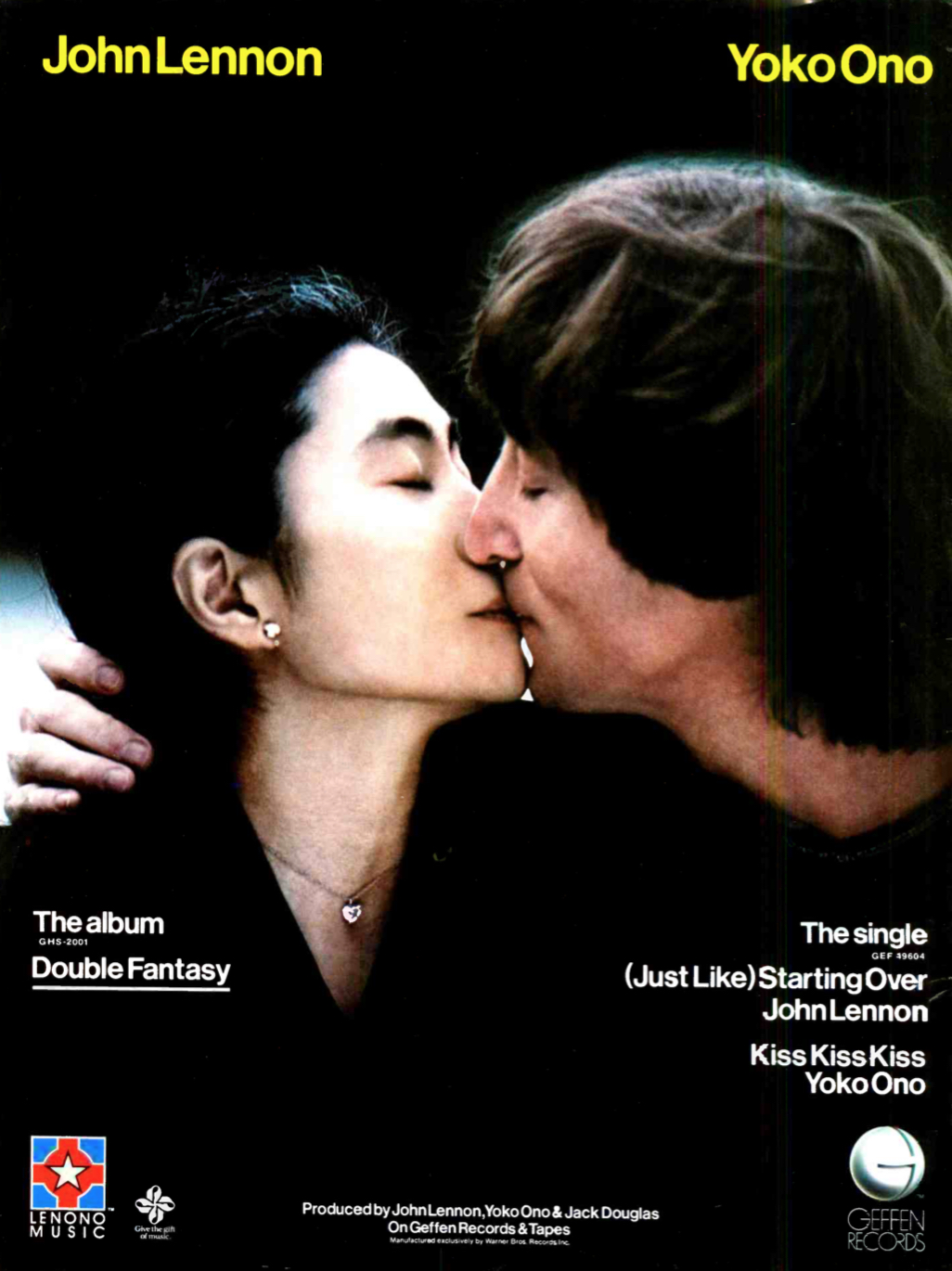
This ad for Double Fantasy appeared in the Nov. 22, 1980 issue of Record World.
In 2018, we spoke with the legendary producer Jack Douglas about his work with Cheap Trick and an album that, for so many, is a generational marker, John Lennon and Yoko Ono’s Double Fantasy.
What is it like working with Cheap Trick in the studio?
Jack Douglas: They’re great to work with. They have that Midwestern work ethic and it’s never stopped. The guys in Aerosmith—bless them, but they’re rich and lazy except for Joe [Perry]. They don’t really want to go anywhere new. They don’t really want to make any more records. Steven [Tyler] is just, “I have other people that can write for me and they make it sound like I’m writing it.” That’s great they can do that if they want. Cheap Trick will never do that. It’s all about the work. They live for the work. When you get in a room with them, there’s no lollygagging. Get to work. And I love to work. [Author’s note: Cheap Trick did use a British songwriting duo, Mitchell and Graham, to write the power ballad “The Flame,” which became a significant hit.]
Guitarist Rick Nielsen is glib and funny in public. Is he that way in the studio?
He is exactly what you see, 100 percent of the time. He’s always fun to goof around with. Those guys have a great sense of humor. They honestly don’t take themselves seriously. For them, it’s an absolute honor and privilege to live the lives that they do and they have not forgotten it. We have a great relationship; they’re also my brothers, like Aerosmith.
Listen to “Elo Kiddies” from Cheap Trick’s Douglas-produced debut album
Considering all of the artists you’ve worked with, there must have been creative conflicts along the way. How do you best resolve them?
Everyone has different ideas. The best thing to do is to listen to all the ideas and in some way, try them and then say, “Look, we’re in a room where ego is not important and bullsh*t is not important. What’s important is what sounds best.” I won’t say to someone, “I’ll never try that.” If there’s a conflict, I’ll say, “Let’s try your way and my way and see what it sounds like.” Sometimes, a member of a band can’t express it in terms other members of the band can understand. At which point I have to interpret: “Is this what you mean?” “Yeah, that’s what I mean.” “Let’s try that.” If there’s any honesty in the room, then the truth comes out and the arguments are over.
You’re a diplomat. Did that come naturally or did you have to learn along the way?
That’s a good question. I think I’ve always been a bit of a diplomat. I’m slow to anger and it takes a great deal to make me depressed or unhappy. I’m very good at riding right in the middle.
Let’s talk about John and Yoko’s Double Fantasy. Can you separate how it felt making the album from what happened afterwards?
Absolutely I can. Because the two emotions on either side of Dec. 8th are really weighty. There’s a great amount of joy on one side and just terrible tragic feelings on the other. And scars that have yet to go away and probably never will. But it’s easy to separate between the two. Because I was working with him right up to the last day and the last night, there’s a certain line drawn there. It drew a line in my life.
As it did everyone’s, yours more directly and explicitly. How was he in the sessions? From what I gathered, happy to be back at work, the long sabbatical is over, back in the game, future looking good.
Oh, yeah, absolutely. In more ways than one. We finished that record and he told me that he wouldn’t see me ’til after the new year to work on some more stuff. And within two-and-a-half weeks he was calling me up saying, “What are you doing?” I said, “Aren’t you supposed to be in Bermuda?” He said, “Ah, you know what, once I get rolling I can’t stop. So, let’s go back [in the studio].” I was already doing another project for RCA and he asked me to move it around so I could start doing that at 9 at night and we’d start working [together] at noon. And I did.
Watch the video for “Watching the Wheels” from Double Fantasy
The album arrived on Nov. 17, 1980, three weeks before he was shot. I know you were back in the studio, working on “Walking on Thin Ice.” What was the vibe like?
First of all, he wanted no one else in the studio except whatever assistant I wanted. He wanted to just experiment. He wanted me to both produce and engineer and we were basically just going to sit in the room and have fun. I had Mark Antonio come in to assist me. John said, “Let’s listen to some loops we have here and there.” We had a drum track and a bass track and some other instruments going for what turned out to be “Walking on Thin Ice.” I cut a loop for that, drum loops and guitar loops, and basically John and I played guitar over those loops. This is like what you imagine kids doing in their basement, but we were in a real room where we could just go crazy and do whatever we wanted and do it all ourselves. It was actually a guitar solo we were both playing at the same time. Then there was the rapping over it, the poetry reading, the Yoko thing, and we were pretty much through and we finished it. That was the beginning of a bunch of stuff we had planned. But it started and ended right there with that one.
Watch the video for “Woman” from John and Yoko’s Double Fantasy
Related: That day in December 1980 that we can never forget
So, there’s nothing else that might come out of those sessions?
There’s plenty of other material bouncing around. Some people have heard it, other things no one’s ever heard. There’s a lot of material from the Double Fantasy sessions, a ton of things—nothing really complete. A lot of jams, a lot of Beatles songs. That’s all up to Yoko, what she wants to do with it. As it gets later and later in her life, I’m doubting [anything will come out]. I keep asking—she and I are in touch all the time—and I keep asking if we can go back to [John’s appearance at the Nov. 28, 1974 Elton John concert at] Madison Square Garden and dig into that thing and make it work. It was released, but doesn’t sound all that good. There’s a lot of footage that wasn’t used. There’s all kinds of gems there that fans would love. It’s an important statement, that concert, and she’s like, “Let’s do it next year, let’s do it next year.”
Listen to John Lennon and Elton John singing “I Saw Her Standing There” at Madison Square Garden
[Sean Ono Lennon produced a 2025 boxed set, Power to the People, featuring 90 never-before-heard and previously unreleased tracks including Lennon’s 1972 concerts at Madison Square Garden. The Super Deluxe Edition is available in the U.S./worldwide here, in Canada here and in the U.K. here.]
Related: The other part of our interview with Douglas, about his long-running association with Aerosmith

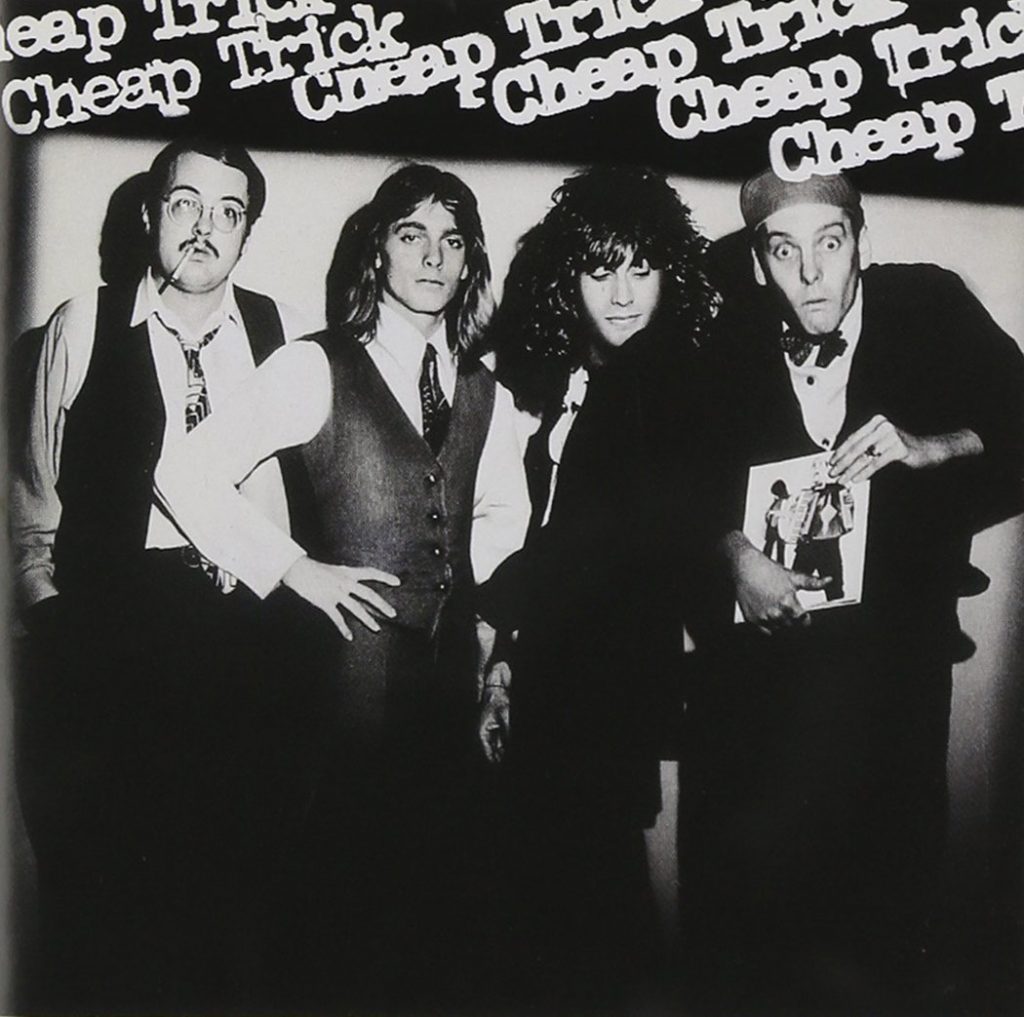

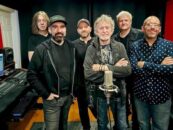
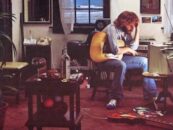
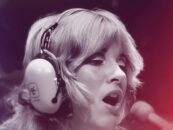
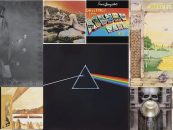

6 Comments so far
Jump into a conversationI think Jack is talking here about the 1972 MSG concerts, rather than the 1974 Elton John one.
To be fair, Cheap Trick didn’t hire those guys to write The Flame for them. That was during the period when Epic was foisting outside writers on them and that song, #1 or not, was one of the songs they were compelled by Epic to record.
…not only that, they didn’t even record the song at the same time.Producer Richie Zito’s strategy was “divide and conquer” and worked with each guy individually, because together thery would have fought it. Oh, and it was the last song to be recorded, and I’m sure they were ready to get out of there.
That said, it’s not a bad song, and for what it is, they slay it, especially Zander.
What I was hoping for here was discussion of the alleged Lennon/Cheap Trick sessions which were suppressed/destroyed my Ms. Ono (massive love and respect here)
Read Ken Sharp’s book “Starting Over” and you can see what the Cheap Trick musicians say about these sessions, rather than relying on your own prejudice.
Authors Note: Cheap Trick was FORCED by the label to use outside writers for ‘The Flame” and most of the other songs on “Lap of Luxury” and “Busted”. This is what happens when you sue the label and LOSE.